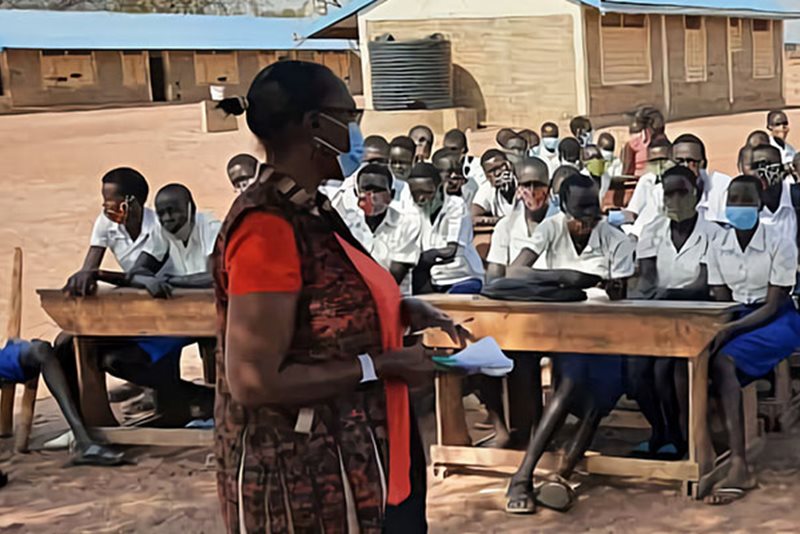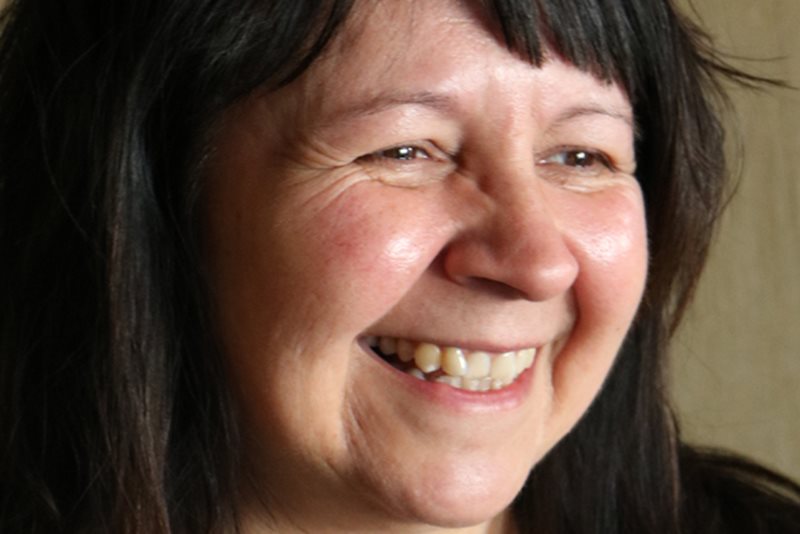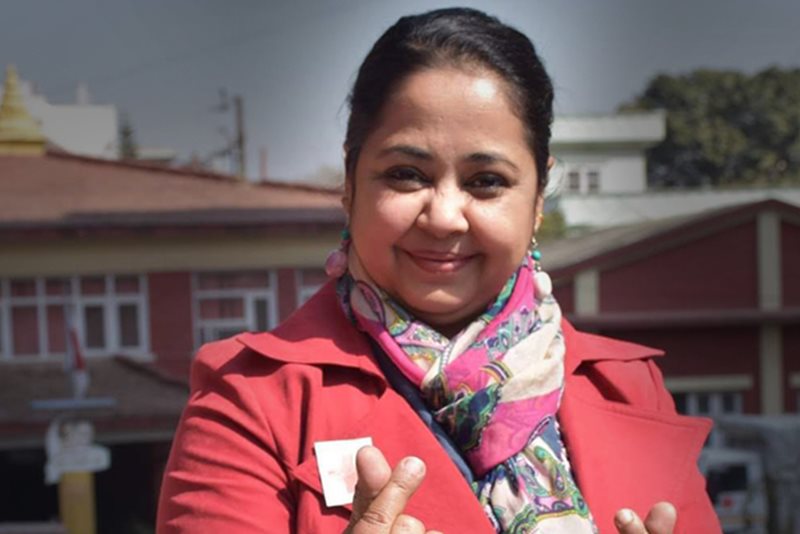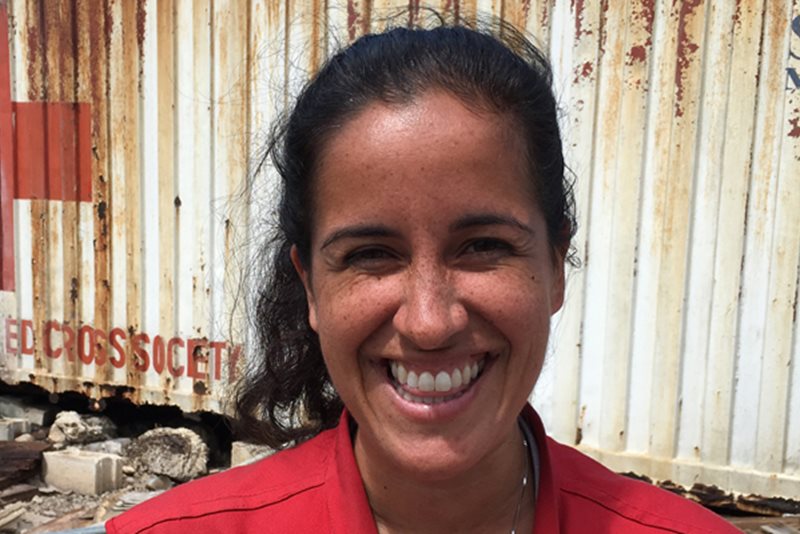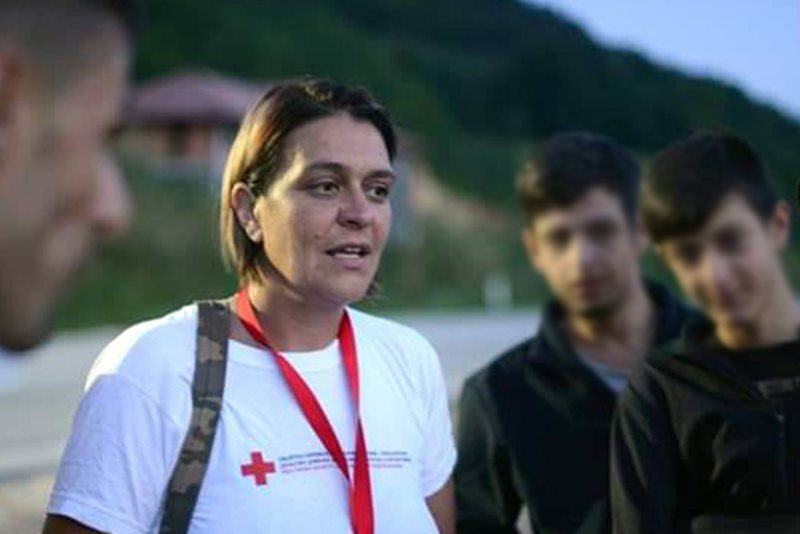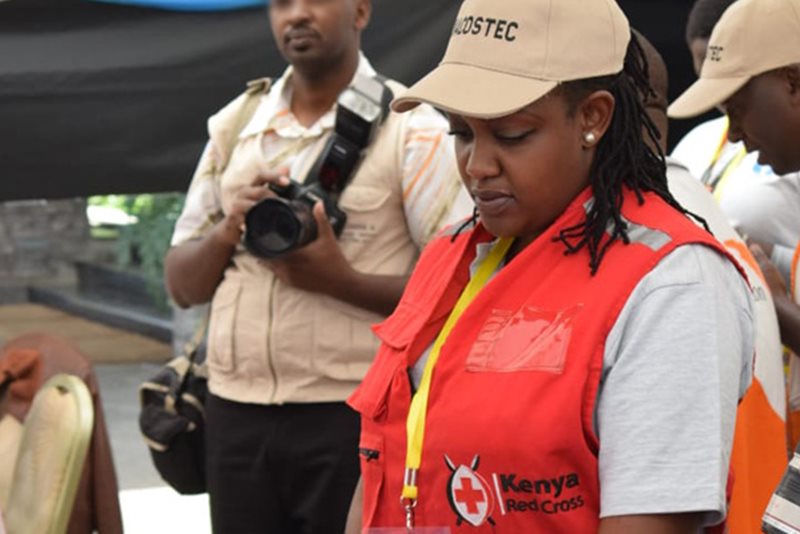Medoline Lema is a passionate health care professional, trained as a nurse and midwife in her native country of Tanzania. With the opportunity of international travel, she spent years building a career in hospitals in Liberia, as well managed her own private midwifery practice. Unexpected and dramatic, this steady career was plunged into uncertainty with the explosion in 1989 that was the advent of the Liberian civil war. Fleeing the widespread violence, she found herself a refugee in neighbouring Ivory Coast, facing an unpredictable future. The following years were to shape the next chapters of her life and career as she found herself drawn back to the country in crisis where the need for health professionals was more acute than ever.
Looking for an opportunity to make a contribution, the start of her humanitarian career was also her introduction to the Red Cross Movement as she worked as a volunteer for the Liberian Red Cross in supporting their detention program under International Committee of Red Cross and visiting prisons and other confinement centres, where they were providing a basic level of health care to detainees.
She went on to work for other organizations in other countries including Somalia, South Sudan, DR Congo, Palestine, and Zimbabwe. With a particular passion for reproductive health, she did her research and master’s thesis on the decision-making process regarding birth control and family planning of women in depressed areas of Nairobi, Kenya.
In 2010 she immigrated to Canada and was hired by the Canadian Red Cross as Health Program Manager Africa. Asked about this return to the Red Cross Red Crescent Movement, Medoline responds, “This opportunity to again work for the Canadian Red Cross and the Movement was like coming back home following a long journey.”
– Medoline Lema, Canada” Working with and for the Movement gives me that privilege and responsibility which I never take for granted. ”
With the graduation from High School of her youngest child, she and her husband decided to return to the field, ending up in South Sudan where she is now the Country Representative of the Canadian Red Cross.
In Juba Mendoline has the opportunity to lead in the implementation of a Canadian government funded project supporting the retention and continuation of girls’ education, as well numerous other Canadian Red Cross supported actions in rural South Sudan.
This leadership role in a demanding context, with both a living and work culture of male domination has been the most recent challenge, compounded by an acute environment shaped by conflict. Medoline carefully explains: ” Using a gentle yet firm and assertive voice has provided most women, including myself, the ability to showcase the importance of women in leadership as well as the value of diversity which is so important. Including women can bring to bear the best capacities available and ensure that strategic planning and practical implementation includes as wide a perspective as possible. Women and men, girls and boys, under the acute stresses of conflict and violence, share in their vulnerability but also have their specific needs. To ensure a diverse and thoughtful analysis of these contexts, to develop an appropriate response, as well to engage with the communities that express this diversity, it is important that women are part of the process and the leadership. Unfortunately, this is still not the case though concerted efforts are shifting the dial somewhat. We need to press on this trend.”
Medoline speaks movingly of engaging with women, girls and communities facing difficult circumstances, applying multiple approaches to finding solutions to their pressing needs, of that of their families, and working together with community leaders and fellow humanitarian actors. Asked what keeps her going under these difficult circumstances, she responds:
– Medoline Lema, Canada” It is my greatest wish to be able to make a difference, hopefully improving the lives and opportunities of one person at a time.”

Women are more likely to diminish and undervalue their professional skills and achievements than their male counterparts.
